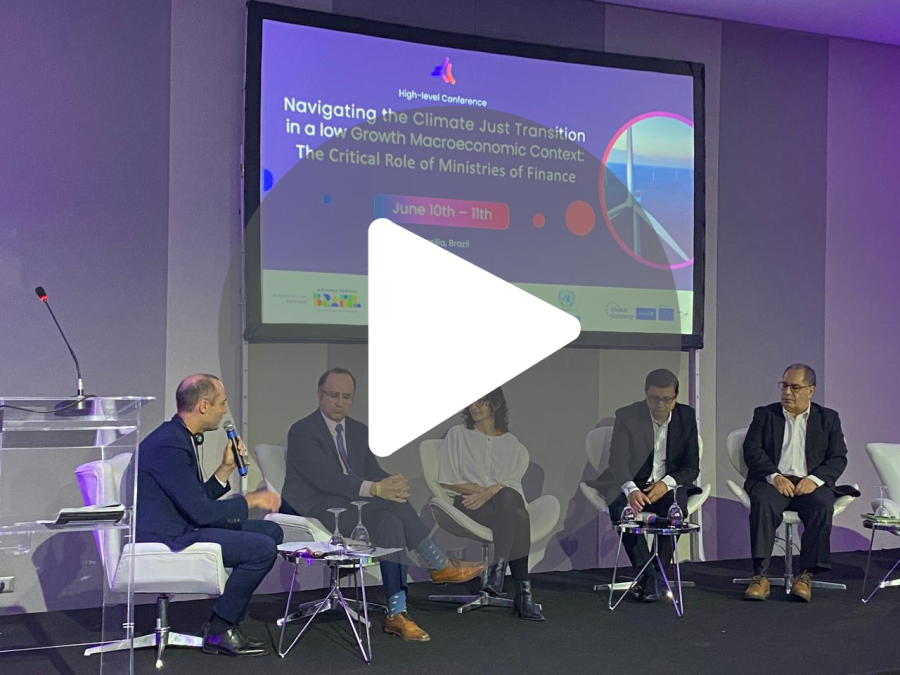The 1st C3A high-level conference in the LAC region
 Brasilia, Source: Unsplash
Brasilia, Source: Unsplash
In September 2023, C3A joined forces with the United Nations Economic Commission for Latin America and the Caribbean (CEPAL) to form the C3A regional hub in Latin American and the Caribbean region. A year on and as part of the preparatory process for COP30, we are taking our collaboration with CEPAL to the next level with a regional conference on climate-informed analytical tools for Ministries of Finance. About a week ago, jointly with our regional partner ECLAC and the Ministry of Finance of Brazil, we brought together a unique group of representatives of Ministries of Finance, central banks, academics and experts from the Latin American and Caribbean region to exchange on the emerging economic and climate policy issues ahead of COP30 as well as the suit of analytical tools and policy instruments to support informed decision-making.
Co-hosted by C3A, the World Bank, the Ministry of Finance of Brazil, and the Economic Commission for Latin America and the Caribbean (CEPAL), with support from the Euroclima Program, the conference drew attention to pressing issues such as economic growth constraints, fiscal limitations, and the region's high vulnerability to climate impacts. Key stakeholders emphasized the urgent need for coordinated strategies to transition towards a sustainable and equitable economy.
The discussions at the conference centered around several critical themes:
- Integration of Climate Considerations: participants stressed the importance of embedding climate concerns into economic, financial, and fiscal planning processes. This integration is crucial for fostering sustainable development pathways amid global and regional economic challenges.
- Mobilizing Financial Resources: the conference highlighted the necessity of mobilizing financial resources for sustainable projects. Participants explored innovative financial architectures and the role of international cooperation in enhancing access to climate finance.
- Enhancing Institutional Capacities: structural challenges such as limited institutional response capacity and dependence on polluting sectors were acknowledged as barriers to effective climate action. Strengthening public institutions and improving technical capabilities emerged as key priorities.
- Policy Implementation and Coordination: successful policy implementation hinges on aligning climate agendas with local government actions and financial mechanisms. Countries like Mexico, Colombia, the Dominican Republic, and Paraguay were recognized for their proactive steps in issuing green bonds and diversifying their energy matrices.
The conference concluded with a resounding call to strengthen international cooperation and develop structural solutions that address both the climate crisis and social-economic disparities. It highlighted the Finance Ministries' pivotal role in driving forward climate action agendas that are not only effective but also inclusive and sustainable in the long run.
In conclusion, this conference called for an integrated approach that bridges academia, government, and the private sector. This approach aims to develop effective and equitable climate strategies tailored to the unique economic and structural characteristics of each country in the region. The urgency of addressing climate challenges through comprehensive actions, including biodiversity conservation and sustainable ecosystem management, was emphasized as a shared responsibility across national and international levels. This is what C3A has set itself to achieve.
 Speakers at the C3A LAC Conference
Speakers at the C3A LAC Conference
